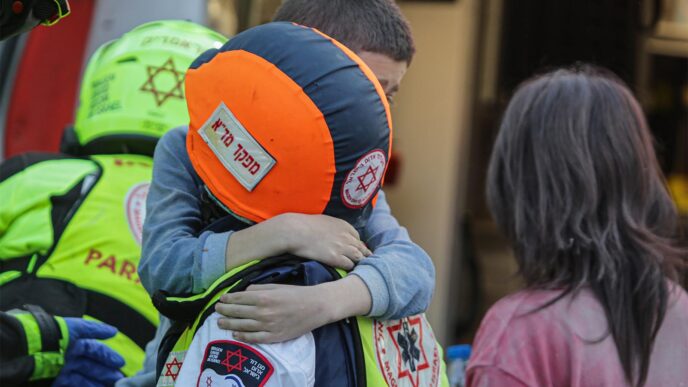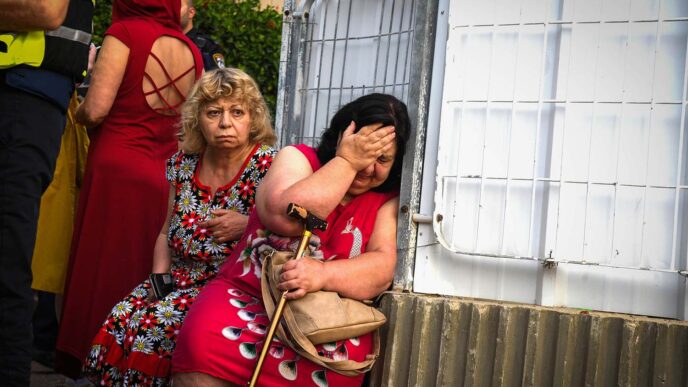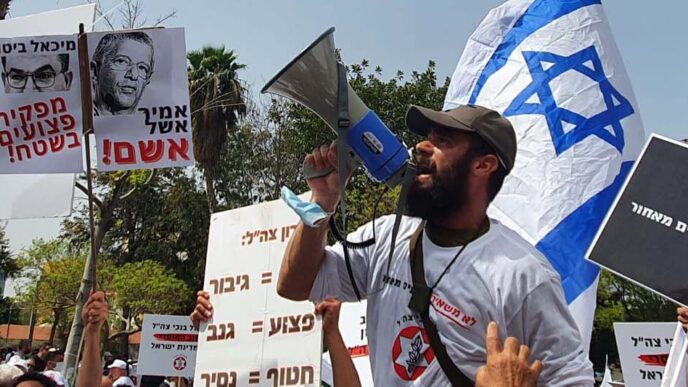
The Israel Trauma and Resilience Center, or NATAL, an organization that helps victims of national trauma, has seen an increase in referrals by hundreds of percent in recent months, ever since the tragic incident in which combat soldier Itzik Saidian set himself on fire after struggling with post-traumatic stress disorder.
The current escalation and the violent riots across the country are creating another wave of distress that must be addressed, according to NATAL’s executive director, Efrat Shaprut.
"We are always here for everyone who needs us, available and welcoming to all without bureaucracy, but it is starting to be difficult for us, and we too need the help of the public," Shaprut said.
"The increase of referrals in recent weeks, even before the current escalation, is reminiscent of the volume of referrals we had in the days of Tzuk Eitan," she continued.
"It is not only the amount of referrals, but also their intensity. Combat soldiers report recurrence of symptoms, anxiety attacks and anger, difficulties functioning in their family and at work. Family members call with concerns about their partners and relatives.”

The last 24 hours have seen not only the escalation of security tensions in the south, but also rocket fire towards Jerusalem and the Tel Aviv area, and violent rioting in mixed cities between Jews and Arabs. These events provoke another wave of distress and many calls from citizens dealing with the feelings of threat and missile alarms for the first time.
NATAL’s volunteer teams were called in to reinforce the phone lines and to provide assistance on the ground.

But while some referrals require assistance and guidance in a one-off phone conversation, in more complex cases, a volunteer is paired with the caller, beginning a close and long-term contact. In some cases, clinical treatment that the organization offers is also required.
Saidian's suicide and the ensuing resurgence of the struggle for recognition by wounded veterans of the IDF, has created a situation where, for the first time, the high demand for treatment exceeds the ability of NATAL to respond.
"This is the first time that we have created a waiting list for treatment that already numbers dozens of people,” Shaprut said. “In order to adequately provide our services, we must expand our therapeutic systems by about 10%."

At the same time, at the request of the Ministry of Defense, the organization's therapists were present for 16 days at the protest tents of the disabled veterans in front of Tel Hashomer Hospital and the Rehabilitation Division in Petah Tikva, to try to calm, contain and give an initial emotional response on the ground, and deal with extreme incidents of emotional breakdown or outburst.
"We are in contact with the Ministry of Defense with the aim of increasing their support for us for the treatment of combat soldiers. Last week, we held a donation campaign," said Shaprut, adding that there are charities that support the organization on a regular basis.
However, she notes that this is a particularly challenging time for NATAL.
"We will need an addition of a few million shekels to meet these challenges, and we definitely need the help of the public at the moment as well, so that we can give a sufficient response to as many people as possible in this complex period,” she said.
To donate to the Israel Trauma and Resiliency Center, visit their website.






